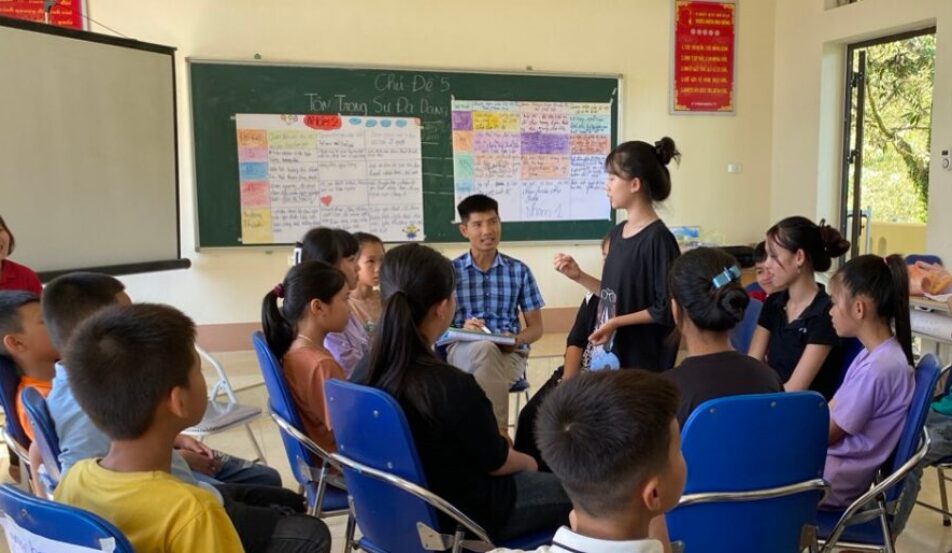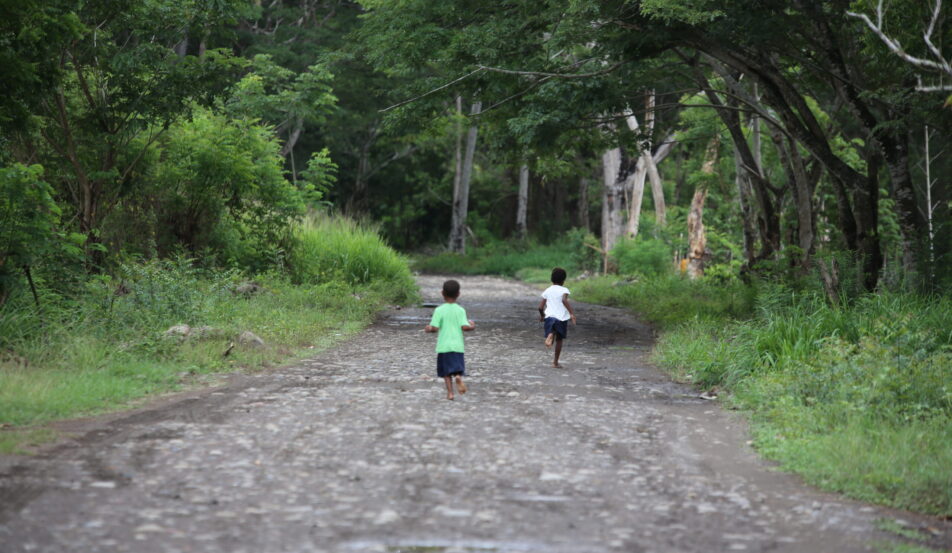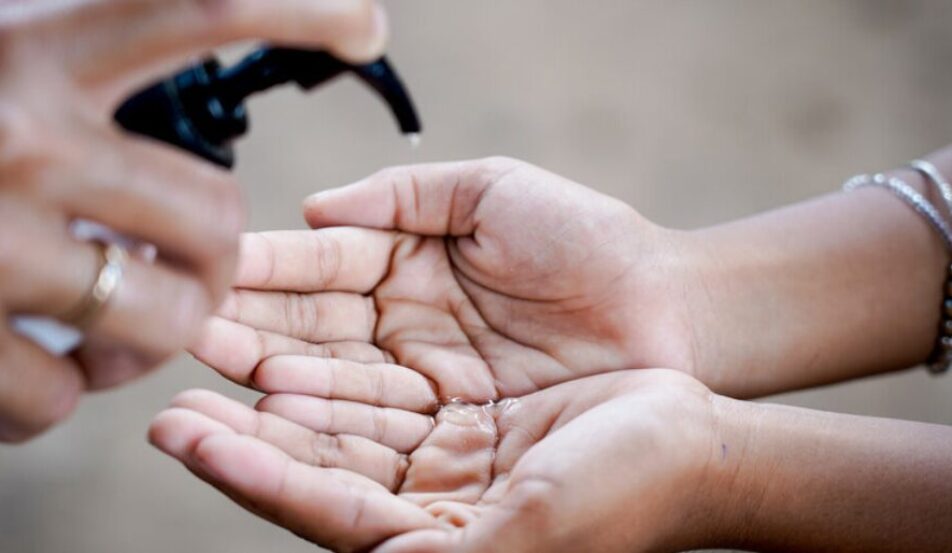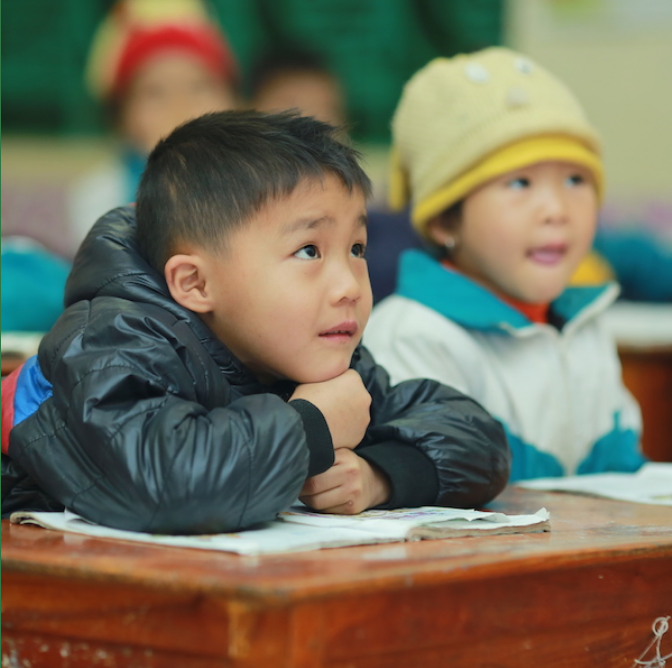Rosemary is one volunteer keeping her community healthy
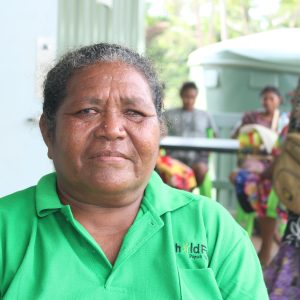
Rosemary (pictured left) was born and raised in Kivori. She has been a ChildFund volunteer for almost six years. She is warm, kind and takes pride in being part of helping build a healthier community. “When people have a health emergency, they run to me. They recognise me as a community health volunteer – it gives me authority,” said Rosemary.
Four hours north of Port Moresby sits Kivori, a small coastal village. The road into the village is rough, rocky, and unreliable – often becoming impossible to drive on when it rains.
In remote villages like Kivori, timely health care is hard to find. ChildFund Papua New Guinea has worked in Kivori for more than six years and in 2021 opened a fully stocked health post. The Kivori Health Post is open one week every month, when district health professionals visit.
During this week, families visit the clinic for tuberculosis diagnosis, routine immunisations, and any other health concerns. In between these visits, Community Health Volunteers (CHV), like Rosemary, are the backbone of healthcare in the community.
As a CHV, Rosemary supports pregnant mothers in the community to access antenatal care. She also identifies possible tuberculosis (TB) cases and encourages children to be tested, diagnosed, and treated.
Before becoming a CHV, Rosemary worked with the village courts to respond to domestic and family violence to ensure that children were safe and protected.
She first heard about ChildFund Papua New Guinea through a TB prevention and treatment workshop. In the last few years though, her attention has shifted from TB to COVID-19. She attended a ChildFund workshop to learn about the symptoms and how families could protect themselves from the COVID-19 through hand hygiene and social distancing.
More recently Rosemary has been advocating to families to get the COVID-19 vaccine. After the training Rosemary went from door to door to talk about the vaccine.
“There are so many challenges. It is a lot of hard work. Sitting and having a conversation though, doing the explaining – that is how I encourage my friends and family. This is what encourages them to get the vaccine.”
Rosemary explained that many parents question whether the vaccine is safe for their children and if there are any long-term impacts. She says that widespread misinformation and lack of access to the vaccine is largely to blame for the low uptake. Only 3.5% of the country is fully vaccinated.
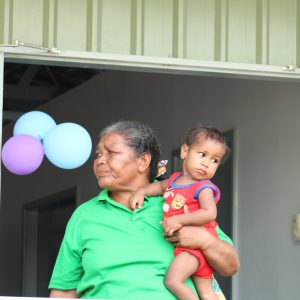
“This is my community, and we are very far away from other health posts, so we must work as a team to keep people healthy.”
Once a month they host community information sessions at Kivori about the virus and the vaccine. Slowly, more people in Kivori are choosing to get vaccinated.
Rosemary is happiest when watching her community grow. When asked about her own family during the interview, her one-year-old grandson crawled over and grabbed for her. She smiled and picked him up. “This is my grandson; I call him my booboo.”
Rosemary is one of three volunteers working in antenatal care. “We do home visits to see the mothers and attend the clinics with them. We also support them with transport to and from the community.”
She says that she particularly enjoys the antenatal work and supporting expecting mothers; she loves talking to people in her community and seeing it thrive.
Looking to the future she hopes to see health care professionals stationed at Kivori on a full-time basis. This would mean the clinic could open every day and people in the community could access healthcare when they need it.
“Kivori needs an ambulance,” says Rosemary. “We do many referrals but the road in and out of the community is not very good and it is a long trip. Sometimes people sit in their sickness because they can’t get to the hospitals.”
CHVs like Rosemary are crucial to achieving better long-term health outcomes for the children and young people. ChildFund is committed to working with communities and medical professionals to ensure children and families can access basic healthcare so they can lead health lives.



